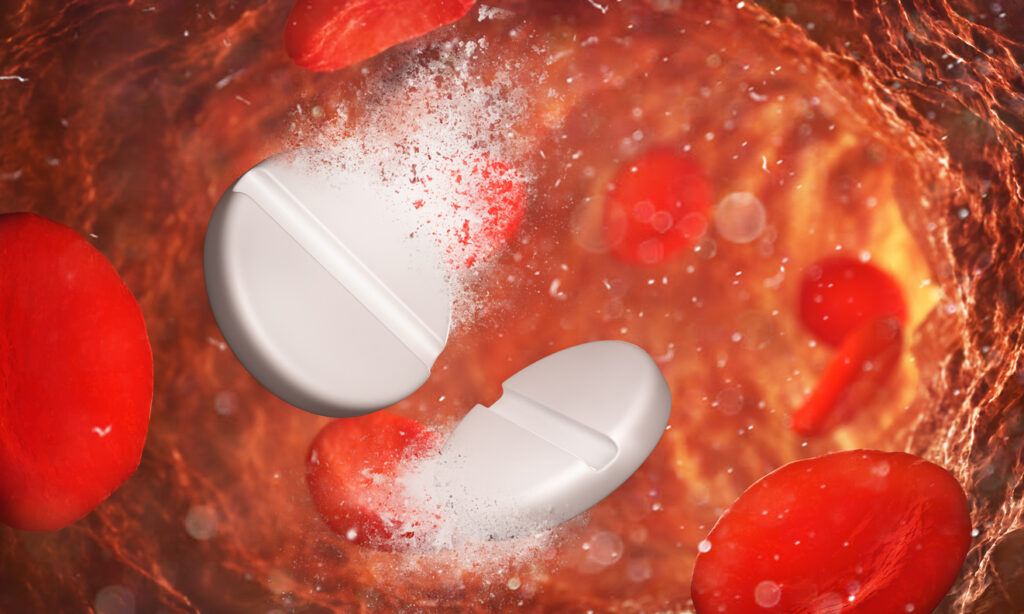As of 2022, Rhode Island continues to struggle with opioid use disorder, with an estimated 20,000 individuals affected by the condition. The prevalence of opioid use disorder in the state remains a significant public health concern due to its adverse effects. Additionally, regional trends are indicating an increase in fatalities in certain areas due to opioid overdose.
Opioid treatment programs in Rhode Island include the use of methadone, buprenorphine, and naltrexone. These treatment options are effective in reducing psychological and physical dependence on opioid drugs, cravings, and opioid withdrawal symptoms, as well as preventing relapse.
This blog post examines how Suboxone opioid treatment programs work and its benefits in treating addiction to opioid drugs. It also discusses the common side effects of Suboxone.
What is Opioid Use Disorder?

Opioid use disorder (OUD), or opioid abuse, is a medical condition characterized by the compulsive use of opioids despite the harmful consequences and adverse effects. Opioids are a class of drugs that include prescription painkillers and short-acting opioids such as oxycodone, hydrocodone, morphine, and fentanyl, as well as the illicit drug heroin.
Opioid medications are taken for their euphoric effects and pain relief for the management of medical conditions such as acute and chronic pain, mental illness and depression, and other terminal diseases such as cancer.
Individuals with this substance use disorder may experience intense cravings for opioids, have difficulty controlling their opioid use, and continue to use opioids even when they cause problems in their personal, professional, or social lives.
They may also develop a tolerance to opioids, require dose increases to achieve the desired effects and experience acute withdrawal symptoms when they stop using opioids.
Opioid dependence over a period of time can lead to severe health consequences, including respiratory depression, overdose, and death, if not treated effectively. Hence, access to treatment for opioid use often involves a combination of medications, such as methadone (in methadone treatment, buprenorphine, or naltrexone and behavioral therapies for the management of opioid abuse and work toward recovery.
What is Suboxone?

Suboxone is a prescription medication used in the treatment of opioid dependence. It contains two active ingredients: buprenorphine and naloxone.
Buprenorphine is an opioid partial agonist that helps relieve withdrawal symptoms and cravings without producing the same euphoric effects as full opioid agonists.
Naloxone, on the other hand, is an opioid antagonist that blocks the effects of opioids and can cause severe withdrawal symptoms if misused.
The U.S. Food and Drug Administration has approved various buprenorphine products for the treatment of opioid dependence, including Suboxone. Suboxone is effective in reducing opioid use and improving medical treatment outcomes for individuals struggling with opioid dependence.
How Does Suboxone Work?

Suboxone works by combining buprenorphine and naloxone to treat opioid addiction effectively. Buprenorphine is an opioid partial agonist that binds to the same mu-opioid receptor as opioids but with less intensity or low intrinsic activity as compared to other opioid agonists, helping to reduce cravings and opioid addiction.
This opioid partial agonist also has a ceiling effect, meaning that at a stable dose, it becomes less effective, reducing the risk of misuse.
Naloxone, on the other hand, is an opioid antagonist, blocks the effects of opioids, and can precipitate opioid withdrawal symptoms if misused.
This combination buprenorphine-naloxone sublingual film or tablet provides a dual-action approach to treatment for opioid use disorder. Buprenorphine helps alleviate withdrawal symptoms and cravings, while naloxone discourages misuse by blocking the effects of opioids and unpleasant side effects if the medication is not taken as directed.
The combination buprenorphine-naloxone makes Suboxone a valuable tool in supporting opioid-dependent patients throughout the treatment of addiction involving opioids and their recovery from opioid addiction and, eventually, successful treatment.
How Do I Take Suboxone?

To properly take Suboxone, place the sublingual film or sublingual tablet under the tongue or between the gums and cheek. Allow it to dissolve completely, which should take 5-10 minutes. Avoid chewing or swallowing the sublingual tablet or film, as it is designed to be absorbed through the oral mucosa.
After the Suboxone sublingual tablet or film has dissolved, it’s essential to swish water around the teeth and gums before swallowing. It helps ensure that any remaining medication is fully absorbed and prevents potential dental issues.
Remember, do not eat or drink anything until the Suboxone film has completely dissolved and been absorbed.
Always follow these instructions carefully to receive the full benefit of the medicine and to avoid any potential complications.
Suboxone is a prescription medication, and it’s crucial to follow the dosage and usage instructions provided by a healthcare professional for a successful treatment.
Benefits of Suboxone as Part of Medication-Assisted Treatment

Suboxone is a highly effective component of medication-assisted treatment for the treatment of opioid use disorder. Access to treatment helps manage withdrawal symptoms and mental illness induced by substance abuse, reduces drug cravings and opioid dependence, and decreases the risk of overdose.
When combined with counseling and behavioral therapy, Suboxone can improve treatment outcomes significantly. Counseling and behavior therapy can help individuals address the underlying causes of their opioid use disorder and develop coping strategies to prevent relapse.
In Rhode Island, Suboxone treatment for opioid use disorder is available at specialized clinics like RI Suboxone Clinic. These clinics offer services to support individuals in their recovery journey, including counseling options such as individual, group, and family counseling, cognitive-behavior therapy (CBT), motivational interviewing, and trauma-informed therapy.
These counseling modalities aim to address the underlying issues contributing to substance abuse, such as chronic pain, and provide individuals with the tools and support they need to achieve long-term recovery.
Types of Behavioral Therapy

Individual Counseling
Individual counseling allows individuals to work one-on-one with a therapist to explore their experiences, emotions, and behaviors related to opioid use disorder. It provides a safe and confidential space for individuals to process their thoughts and feelings, identify triggers and coping mechanisms, and work toward personal growth and recovery.
Group Counseling
Group counseling offers individuals the opportunity to connect with others who are facing similar challenges. A trained therapist leads these sessions and provides a supportive environment where individuals can share their experiences, gain insight from others, and develop interpersonal skills.
Group counseling can help individuals feel less isolated, build a support network, and learn from the experiences and perspectives of others.
Family Counseling
Family counseling involves the participation of family members in the treatment process. It aims to improve communication and relationships within the family system, address any enabling or codependent behaviors, and provide education on addiction and recovery.
Family counseling can be beneficial for both individuals with opioid use disorder and their loved ones, as it promotes understanding, healing, and a supportive environment for recovery.
Cognitive Behavior Therapy
Cognitive behavior therapy (CBT) is a widely used counseling approach that identifies and changes negative thought patterns and behaviors.
In the context of opioid use disorder treatment, cognitive behavior therapy can help individuals develop healthier coping strategies, manage cravings and triggers, and address underlying issues such as co-occurring mental health disorders.
Cognitive behavior therapy empowers individuals by teaching them skills to challenge and replace negative thoughts, develop problem-solving strategies, and improve their overall well-being.
Motivational Interviewing
Motivational interviewing is a counseling technique to enhance an individual’s motivation to change behavior.
This approach involves a collaborative and non-confrontational conversation between the therapist and the individual, focusing on exploring their ambivalence toward change, identifying their goals and values, and eliciting their reasons for wanting to overcome opioid use disorder.
Motivational interviewing aims to build motivation and confidence in individuals, helping them to move towards positive change and achieve their recovery goals, such as abstinence from opioid use.
Not all individuals receiving medication-assisted treatment will require or benefit from every type of counseling. The kind of counseling recommended will depend on the individual’s specific needs and goals in their recovery journey. A comprehensive medical treatment approach may include a combination of different counseling modalities to address the various aspects of an individual’s opioid use disorder.
Overall, behavioral therapy plays a crucial role in supporting individuals in their recovery from opioid abuse when using Suboxone as part of medication-assisted treatment. It provides individuals with the necessary tools, skills, and support to address the underlying issues contributing to their substance abuse, develop healthier coping strategies and management of opioid withdrawal symptoms and cravings, and maintain opioid abstinence.
By combining Suboxone medication with cognitive behavior therapy, individuals have a higher chance of achieving continued abstinence, long-term recovery, and improving their overall quality of life.
Side Effects of Suboxone Treatment

While Suboxone is considered a safe and effective medication for the treatment of opioid use disorder, it does come with some potential adverse effects.
Common side effects of Suboxone can include constipation, nausea, vomiting, headache, dizziness, and insomnia. These common side effects are usually mild and temporary. Plus, typical side effects like nausea and headaches diminish over time.
The more severe side effects of Suboxone can include the risk of overdose leading to respiratory depression (slow or shallow breathing), allergic reactions, liver damage, and misuse or physical dependence on the medicine itself.
It is crucial to note that Suboxone should only be taken under the supervision of physicians and as part of a comprehensive treatment of opioid use disorder. Misuse or unauthorized use of Suboxone can lead to severe side effects, increased risk of relapse, and may hinder the medical treatment for opioid use and the recovery process.
Start Your Journey Today

If you or someone you know is struggling with opioid addiction, Suboxone treatment can be a crucial step in the journey to opioid use disorder recovery.
When used as part of a comprehensive treatment plan, Suboxone can help individuals manage cravings, reduce opioid withdrawal, and ultimately break the cycle of addiction to opioid medications. By seeking Suboxone treatment, individuals can pave the way for a better quality of life, free from the grips of substance abuse.
If you are ready to start your journey toward long-term success and personal fulfillment, visit RI Suboxone Clinic today. Our experienced team of physicians is dedicated to providing supportive and specialty care to help individuals overcome physical and psychological dependence on illicit drugs and build a brighter future.
We provide a safe, substance-free environment and tailored patient management and approach to drug abuse. You can also contact our physician assistants for free, evidence-based resources and guidelines for the management of substance abuse and Suboxone treatment.
Take the first step toward a pain-free life of health and happiness. Contact our physician assistants at 401-228-2793 for clinical guidelines or visit RI Suboxone Clinic today.




